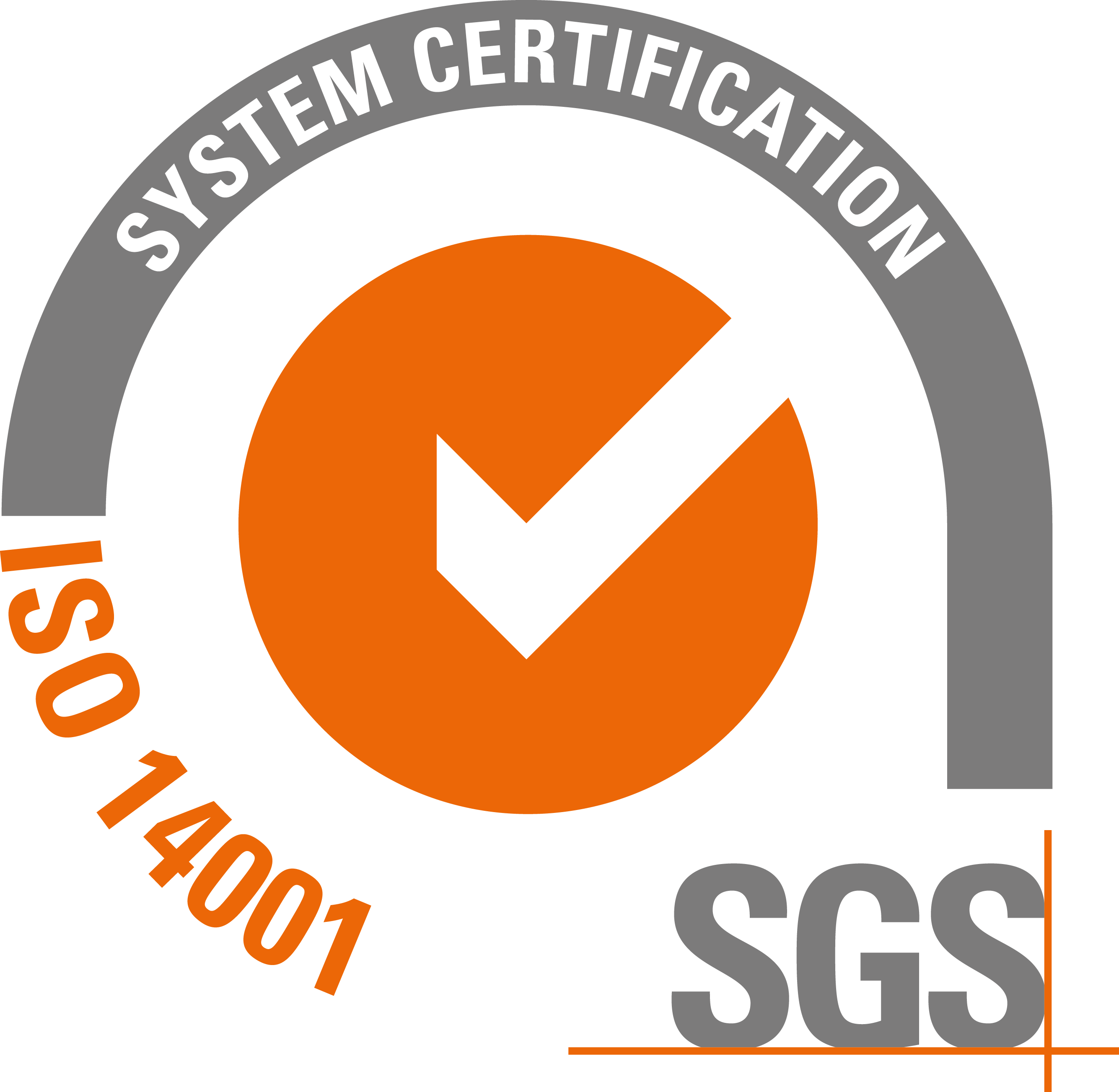CODE OF CONDUCT
-
- Target
This code of conduct defines the requirements established by Tempel Group for our suppliers and customers, and those applied internally with our employees. In relation to the behaviors and measures adopted by these parties in the exercise of their economic activities and in any direct interaction with our organization, with the purpose of ensuring compliance with applicable laws, as well as promoting ethical behavior in all business operations and relationships with stakeholders. - Values and principles
In this section, we present the fundamental values and ethical principles that serve as a guide for behavior within our group. These values represent the pillars on which our organizational culture is based, guiding our actions and decisions in pursuit of excellence, integrity and positive impact on our community and environment.- Commitment: We collaborate with our customers, suppliers and other stakeholders to find solutions through cooperation and the exchange of knowledge and skills.
- Professionalism: We perform our tasks with efficiency, consistency, honesty and transparency, maintaining high ethical standards at all times.
- Innovation: We focus on finding solutions through innovation and taking advantage of technological opportunities to contribute to a better world.
- Environmental Awareness: We are committed to integrating environmental protection criteria into our activities, recognizing the importance of preserving and conserving our natural resources for present and future generations.
- Quality: We adopt a philosophy of continuous improvement, focusing on rigor, prudence and internal efficiency to achieve excellence in our work.
- Equality and Diversity: We promote diversity as a value that strengthens our development, improves results and increases our competitiveness, promoting equal opportunities for all.
- Provisions and areas of application
- Human rights
We respect the provisions of the Universal Declaration of Human Rights and encourage our stakeholders to do the same.
In our employment and recruitment practices, we reject any discrimination based on race, gender, language, religion, political opinion, slavery or forced labour and child exploitation. We respect the right to rest and enjoyment of time through the establishment of working hours, flexible working hours and paid holiday periods. - Labour standards
As an organization, we integrate respect for human rights into our fundamental organizational practices.
In addition, we promote reconciliation measures for men and women, encouraging co-responsibility and balance in work and family responsibilities. We allow flexible schedules, intensive work shifts and other options that adapt to the diverse needs of our team.
We encourage the training and qualification of our employees, and create spaces for innovation, communication and teamwork.
We also strive to constantly improve working conditions, providing safe and adequate facilities for the development of our activities. We offer training courses in occupational risk prevention and emergency care, and provide the necessary protective equipment.
We reiterate our rejection of any form of discrimination and affirm our commitment to comply with the Labor Code, Social Security and occupational risk prevention regulations, thus respecting the applicable labor legislation. - Standards of behavior
We are committed to respecting the provisions set forth in the Universal Declaration of Human Rights and encourage our stakeholders to act in accordance with these principles. In our labor and hiring practices, we categorically reject any form of discrimination based on race, gender, language, religion or political opinion, as well as slavery, forced labor and child exploitation.
We also recognize and respect the right to rest and leisure. We establish appropriate working hours, offer flexible schedules and provide paid vacation periods to ensure the well-being and health of our workforce. - Equality and diversity
Tempel promotes diversity as an integrating value that strengthens its development, increases the achievement of results and improves its competitiveness. To this end, we promote working conditions that respect diversity in all aspects.
Equality and respect for diversity are core values at Tempel. We firmly believe that the application of the principle of equality has a positive impact on all aspects of our organization. We believe that our best asset and competitive advantage is undoubtedly our employees.
Fairness in all aspects is part of our identity. We categorically reject any form of discrimination based on gender, sexual orientation, disability, age, nationality or any other type.
At Tempel, we have a protocol for the prevention of moral, sexual and gender-based harassment that allows us to identify and address any situation of harassment. Our goal is to resolve potential conflicts and preserve the safety and health of our team. Any complaint can be made through our ethical channel, guaranteeing confidentiality and protection. - Environmental protection
We are committed to implementing measures that promote the preservation of the environment. Among the measures adopted to this end are:- Procure with our suppliers and supply our customers with products and technologies that comply with current legislation on environmental care and protection.
- To act in accordance with the laws and standards of environmental protection and care applicable to our products and type of economic activity.
- To propose to our customers products with more efficient technologies, which allow a better use and savings of resources.
- Promote the appropriate management of waste generated by our activity through agreements with management, disposal and recycling entities.
In addition, we encourage our stakeholders to promote additional initiatives that go beyond simple compliance with environmental regulations related to their activity, promoting actions against climate change and the promotion of sustainability.
- Anti-corruption
We believe that the fight against corruption should be one of the main purposes of our organization and a fundamental way to contribute to the improvement of society. Therefore, we conduct our activities with honesty and ethics, rejecting and denouncing any criminal or fraudulent activity.
We implement internal actions to combat corruption. We are committed to rejecting and reporting extortion, bribery and any other form of fraud to which we are exposed or become aware of. In addition, we comply with and respect the laws and regulations in force regarding fraud prevention.
We do not provide benefits to business partners, customers or external third parties, unless expressly permitted by law and in accordance with our internal policies or the terms agreed in contracts and commercial agreements.
We also do not tolerate or participate in any form of corruption, money laundering or bribery, including any payment or other benefit given to officials for the purpose of influencing decision-making or violating the law.
In addition, as part of a collective action, we signed codes of conduct with our business partners, both customers and suppliers, to ensure that all members of our value chain demonstrate and promote the same ethical behavior. - Channels of complaint
In accordance with Law 2/2023, of February 20, regulating persons who report regulatory violations, Tempel, S.A., has established an Ethics Channel to allow its employees and persons expressly authorized by law to use this channel to report regulatory violations.
The Ethics Channel is, therefore, a confidential and transparent means of communication so that both the people who make up the Organization and other interested parties have an appropriate channel to report those behaviors that may involve any irregularity, or any act contrary to the law or the rules of conduct of this Code of Conduct and other internal rules applicable in Tempel, whether committed by other members of the Group, or by representatives or employees of companies that collaborate with it in its various activities.
The information shall be sent through the Tempel website: https://www.tempelgroup.com/ in the Ethics Channel section. In the event of receiving information through other channels, the control body designated by Tempel to supervise and ensure the proper functioning of the established complaint channel, may register it in the channel, in order to ensure the confidentiality of data, avoid security breaches and centralize information.
- Human rights
- Confidentiality
We sign confidentiality agreements with customers, suppliers and other interested parties, where we acknowledge, protect and respect their information.
We understand that intellectual property, patents and other information are important assets of our stakeholders. Therefore, information provided by them to Tempel will be considered confidential if requested by our business partner by signing a confidentiality agreement. Accordingly, we undertake not to disclose this information or assign copies or reproductions thereof to third parties without prior consent.
Excepted from this obligation is information that is already in the public domain or that is in the possession of the receiving party at the time of disclosure, as well as information required by a judicial or administrative authority. Tempel will use confidential information exclusively to comply with obligations arising from agreements established with customers, suppliers and other interested parties.
In addition, we are committed to ensuring that our employees and consultants who have had access to this information comply with our confidentiality obligations and we will encourage this practice throughout our value chain. - Legal Compliance
We comply with the provisions of the legal system and periodically validate regulatory changes that may affect our sector and our business activities.
We continuously update our business processes by applying regulatory changes.
Chef Executive Officer (CEO)
Date of publication: 01/12/2023 Version: 2
Scope
TEMPEL, S.A: C/ Cobalto, 4 - 08907, L'Hospitalet de Llobregat, Barcelona.
Central services.
TEMPEL, S.A: C/ Cobalto, 4 - 08907, L'Hospitalet de Llobregat, Barcelona. Distribution of electronic, electrical, computer and computer products and components.
communications systems. Integration and assembly of industrial computer systems and communications networks.
TEMPOEL, L.D.A: Estrada de Paço d'Arcos 88-88A, Cacém Park - Pv.29 - 2735- 307 Cacém (Portugal). Distribution of electronic, electrical, computer and communications products and components. - Target




